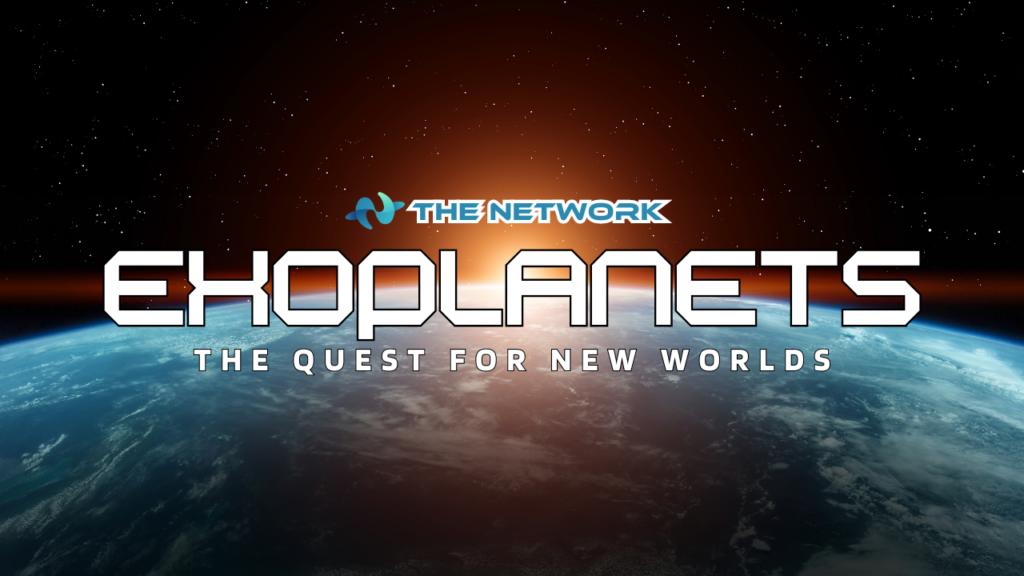Exoplanets: The Quest for New Worlds

In the vastness of the cosmos, exoplanets – planets orbiting stars beyond our solar system – beckon with the promise of untold mysteries and the tantalizing possibility of life. The search for these distant worlds isn’t just a scientific endeavor; it’s a quest that taps into our fundamental desire to understand our place in the universe. But does the future of humanity hinge on finding an Earth-like exoplanet?
Why Search for Exoplanets?
The discovery of exoplanets is more than a pursuit of knowledge; it’s a journey to find a potential second home for humanity. As Earth faces environmental challenges and the natural evolution of our sun looms as a long-term threat, the search for habitable exoplanets becomes increasingly crucial.
NASA’s TESS: A Window to Distant Worlds
NASA’s Transiting Exoplanet Survey Satellite (TESS) is at the forefront of this quest. Launched in 2018, TESS’s mission is to identify exoplanets by detecting minute dips in the brightness of stars, indicating a planet passing in front of them. Its capability to survey thousands of stars has already led to the discovery of numerous exoplanets, enriching our understanding of the universe’s diversity.
The Recipe for Habitability
For an exoplanet to be habitable, several conditions must align. A suitable distance from its star for liquid water to exist, known as the ‘Goldilocks Zone’, is crucial. Additionally, an atmosphere capable of supporting life, along with stable climatic and geological conditions, are key factors.
Ethical Considerations in the Exoplanet Search
The search for habitable exoplanets raises ethical questions. Should we interfere with potentially life-bearing worlds? How do we balance our curiosity with the responsibility of not disrupting other ecosystems?
Technological Advances: Paving the Way to Habitability
Colonizing exoplanets requires technological breakthroughs in space travel, sustainable life support systems, and communication across vast distances. Advances in propulsion technology and AI-driven space exploration are among the innovations needed for this monumental task.
Terraforming: A Distant Dream?
Terraforming, the process of altering an exoplanet to support Earth-like life, remains a speculative and immensely challenging concept. The practicality and feasibility of such an endeavor are still far from our current capabilities.
School or Homeschool Learning Ideas
- Discovery of Exoplanets – Explore the methods used to discover exoplanets, such as the transit method, radial velocity method, and direct imaging. Use real-world examples like the discovery of Proxima Centauri b and the TRAPPIST-1 system to illustrate different techniques and notable exoplanet discoveries.
- Characteristics of Exoplanets – Discuss the characteristics of exoplanets, including size, composition, and habitability. Use examples like Kepler-452b, known as Earth’s “cousin,” and the “hot Jupiter” exoplanet HD 189733b to explore the diversity of exoplanet types and their potential for hosting life.
- Habitability and Astrobiology – Examine the concept of habitability and its relevance to exoplanet research and astrobiology. Use examples like the discovery of the potentially habitable exoplanet Kepler-186f and the search for biosignatures in exoplanet atmospheres to discuss the conditions necessary for life to exist beyond Earth.
- Exoplanet Detection Techniques – Explore the various techniques used to detect exoplanets and analyze exoplanet data. Use examples like the TESS mission and ground-based observatories like the European Southern Observatory (ESO) to illustrate how astronomers search for and study exoplanets using telescopes and spacecraft.
- Future of Exoplanet Exploration – Discuss the future of exoplanet exploration and the prospects for discovering Earth-like exoplanets and signs of extraterrestrial life. Use examples like the James Webb Space Telescope (JWST) and upcoming space missions like PLATO and ARIEL to speculate on the potential discoveries and advancements in exoplanet research.
What Our Children Need to Know
- Space Exploration’s Role: Understanding the importance of space missions in finding new worlds.
- Sustainability Lessons: Learning from Earth’s challenges to ensure the sustainability of future homes in space.
- Ethical Stewardship: Emphasizing the ethical responsibilities in exploring and potentially inhabiting new planets.
The Big Questions
- Could humanity thrive on an exoplanet with conditions vastly different from Earth?
- What unforeseen challenges could arise in colonizing a distant world?
- How will the discovery of life on another planet change our understanding of the universe?
- What are the long-term implications of altering an exoplanet’s ecosystem?
- How can we balance scientific exploration with ethical considerations?





As the founder of SpaceX, I am deeply passionate about space exploration and the potential of human colonization beyond our planet. The search for Exoplanets presents the opportunity for an unprecedented level of collaboration and innovation to uncover the secrets of the cosmos. The work we do at SpaceX is paving the way for humanity to reach new frontiers and pave the path to a sustainable and prosperous future in space.
Wow, it’s really amazing how far we’ve come in the search for exoplanets. The discovery of potentially habitable exoplanets certainly sparks my imagination and curiosity, but it also raises many critical questions regarding sustainability, ethical stewardship, and the possibility of finding life on other planets.
The questions about potential long-term implications of altering an exoplanet’s ecosystem are particularly interesting, as it highlights the delicate balance between science and ethics that we must navigate in our quest for knowledge.
Albert, I understand your concerns. The search for exoplanets is indeed an exciting endeavour, and it also brings up many critical questions regarding sustainability, ethical stewardship, and the possibility of finding life on other planets. The questions about potential long-term implications of altering an exoplanet’s ecosystem highlight the delicate balance between science and ethics that we must navigate in our quest for knowledge. We will continue to explore and search for answers but not at the cost of harming the environment or compromising ethics and morality. I’m confident that together we can achieve this delicate balance.
Elon, I completely agree that we need to continue exploring and searching for answers, but not at the cost of harming the environment or compromising ethics and morality. I also share your views on the delicate balance between science and ethics that we must navigate in our quest for knowledge. We must ensure that any technologies we create and implement are safe and feasible, taking into account their potential impacts and consequences. The continued exploration and search for another habitable planet requires us to approach the situation with caution and responsibility.
Albert, I wholeheartedly agree with your perspective. We must be deliberate yet cautious in our quest for knowledge. Balancing science and ethics is essential to ensure a safe and responsible approach to our exploration and discovery. We are dedicated to advancing technology, while respecting our responsibility to our planet and its inhabitants. We are excited for the future and committed to the responsible exploration and settlement of the final frontier.